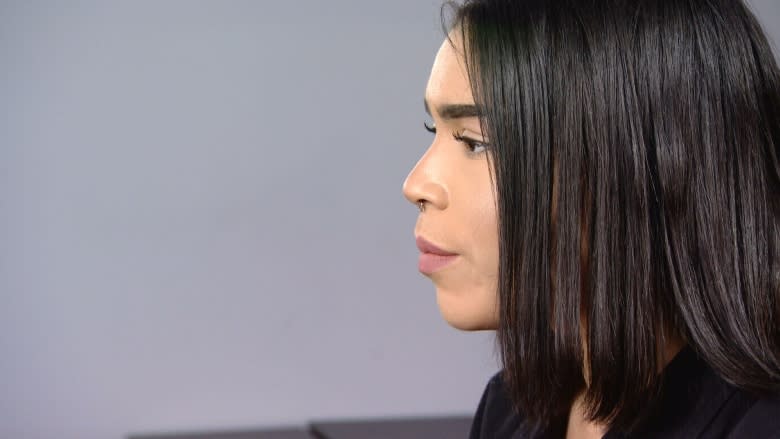Cree Ballah says she quit her job because Zara told her to remove her box braids
A Toronto woman who quit her job at clothing giant Zara after she said her managers told her to alter her braided hair says she did the right thing by standing up for herself.
Cree Ballah, a 20-year-old woman who identifies as biracial, said she quit weeks after her managers at the Scarborough Town Centre store took her outside the shop and forced her to take out her box braids. Ballah said the managers told her that her hairstyle didn't fit the "clean professional look" Zara was striving for.
Zara has no formal policy about how employees wear their hair, a company spokesperson told CBC News in a statement on Wednesday, adding employees are expected to "present a professional appearance."
After Ballah went public with her experience last week, her story has been shared tens of thousands of times with many leaving comments of support for the young woman. Ballah said other Zara employees have also contacted her to say they went through the same thing.
"I wasn't OK with working for a company that treated me in that way," Ballah told CBC News.
Ballah said she's still considering filing a complaint with the Ontario Human Rights Commission and admits she's still stung that Zara hasn't admitted to any wrongdoing. She notes she filed a complaint with the company's human resources department before going to the media with her story.
Zara's spokesperson said the company "conducted a thorough investigation of the allegations in her complaint and found no evidence of discriminatory practices or behaviour."
"Zara engaged directly with Ms. Ballah on this matter and apologized for any misunderstanding."
Zara says company would never ask employees to remove braids
She said she doesn't believe Zara is racist but said it lacks strict guidelines that could prevent discrimination. Instead, she said, the company's policies are so vague that individual store managers, who may hold certain biases, get too much power.
"Everybody has their own personal bias … sometimes it's hard to recognize until someone is offended by it and they bring it up," Ballah said.
It's especially hard, she said, to recognize that those biases can hurt others.
"I feel like that's what Zara is going through now," she said
Zara's spokesperson said the company: "would never, under any circumstances, ask an employee to remove his or her braids, and in fact, we have employees with a wide variety of hairstyles, including many styles of braids.
Ballah isn't the only one who's come forward with this type of complaint.
Last month, CBC News reported that Akua Agyemfra — a 20-year-old server at a Jack Astor's Bar and Grill — was sent home because her hair was in a bun.
Agyemfra came forward after an investigation by CBC's Marketplace found waitresses working for several Canadian restaurant chains felt pressured to dress in a sexually provocative manner on the job.
Experts interviewed by Marketplace said dress codes at those restaurants might contravene women's human rights.
Black community lends support
Ballah, who calls herself a private person, said she's been overwhelmed with the response to her story.
"I got a lot of love, especially from the black community," she said.
She also said it felt good to be backed up by scores of commenters online.
"I didn't think it was going to blow up this much," said Ballah.
She said she still has one job and will start looking for another soon. She's also hoping to engage more with the black community, and said she's already been talking with the organizers of the Black Lives Matter — Toronto group.
"I feel like I did the right thing. I don't have any regrets," she said.



